Military
Putin's Newest Attack Helicopter Is Equipped With Machine Guns and Rocket Pods
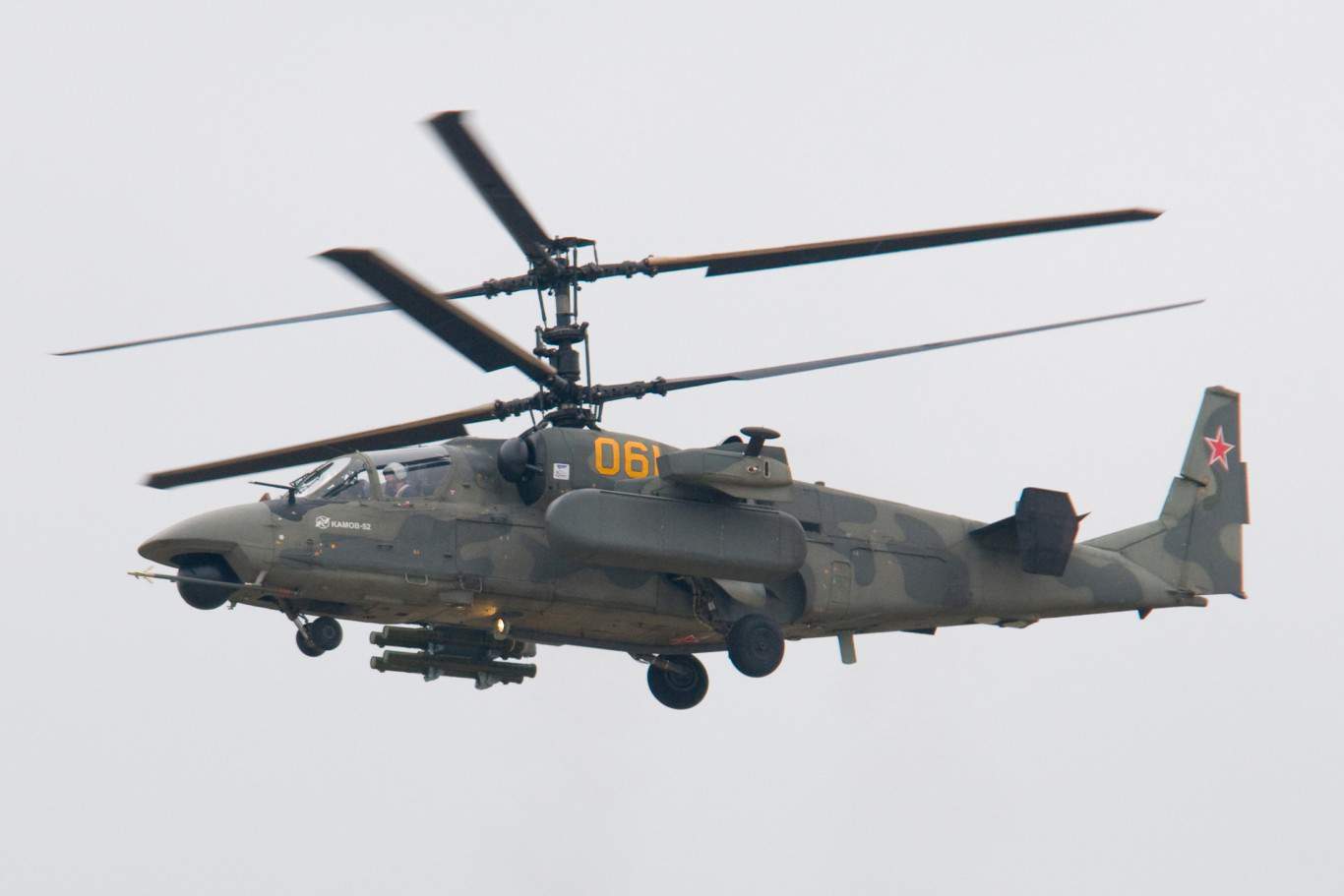
Published:

One of the newest Russian attack helicopters to enter service is the Ka-52 Alligator. This helicopter is an advanced iteration of the Ka-50 Black Shark and a big leap forward in combat capabilities. (This is every Russian combat aircraft currently in service.)
These attack helicopters are outfitted with high-end avionics and electronic warfare systems. At the same time, it can be equipped with a number of weapons including a 30mm cannon standard. The Ka-52 can equip anti-tank guided missiles as well as rockets to aid in its anti-armor operations.
The Ka-52 Alligator has proven its worth in a few conflicts notably in the Syrian Civil War, as well as currently in the ongoing conflict with Ukraine. Since its debut in Syria, the Ka-52 has become a staple of Russia’s attack helicopter fleet, and it is one of its most widely used in that regard as well.
Perhaps one of the most distinct features of this aircraft is its coaxial rotor system. This marvel of modern engineering eliminates the need for a tail rotor and allows for improved agility in flight. Also, the Alligator’s ability to fly at low altitudes improves its stealth and makes it harder for enemy forces to detect and target effectively.
While the Ka-52 is one of the newest attack helicopters to enter service for Russia, 24/7 Wall St. is taking a closer look at Russia’s entire fleet of helicopters. To identify the newest helicopters used by the Russian military, 24/7 Wall St. reviewed data from the 2024 World Air Forces report from FlightGlobal, an aviation and aerospace industry website, and ranked the aircraft chronologically. Additionally, we’ve included supplemental information on the type of aircraft, how many are in active service, top speed and armament.

Understanding the aircraft in Russia’s Air Force is important because they play a big part in the country’s defense and global influence. Each type of aircraft has a specific job, like controlling the skies, bombing long-range targets, or using advanced technology to disrupt enemy systems. Knowing which aircraft are in use gives context to Russian military strategies and military capabilities.
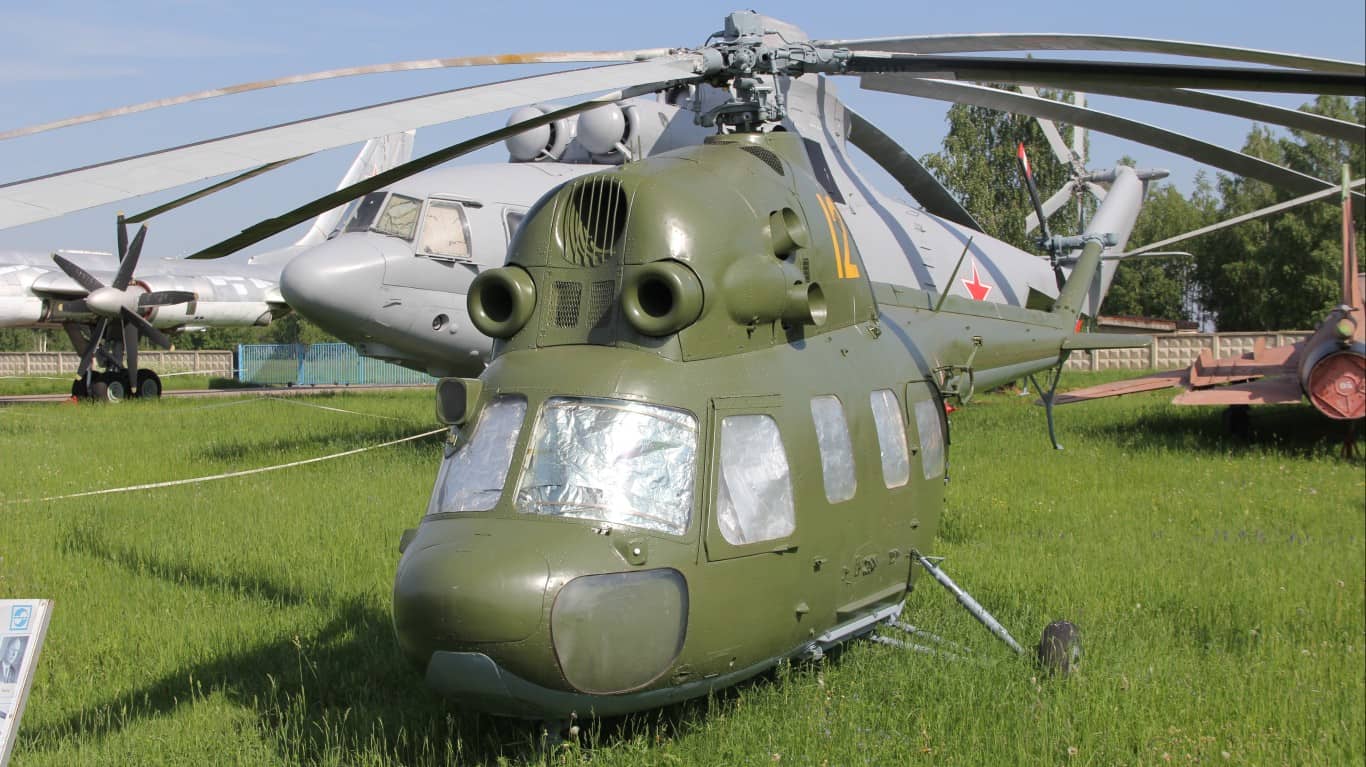
The Mil Mi-2 Hoplite is one of the older helicopters currently in service of Russia’s military with only 4 active aircraft. These helicopters were introduced in 1965 and can equip a wide array of armament including 23mm automatic cannons (standard), rocket pods, anti-tank guided missiles, and air-to-air missiles.
The Mi-24 earned the nickname the “flying tank” as a result of its heavy armor and incredible firepower. These helicopters have a top speed around 208 mph and can equip 12.7mm heavy machine guns, 23mm and 30mm cannons, anti-tank missiles, rocket pods, and conventional drop bombs. With 325 active aircraft, the Mi-24/35 is the backbone of Russia’s attack helicopter force.
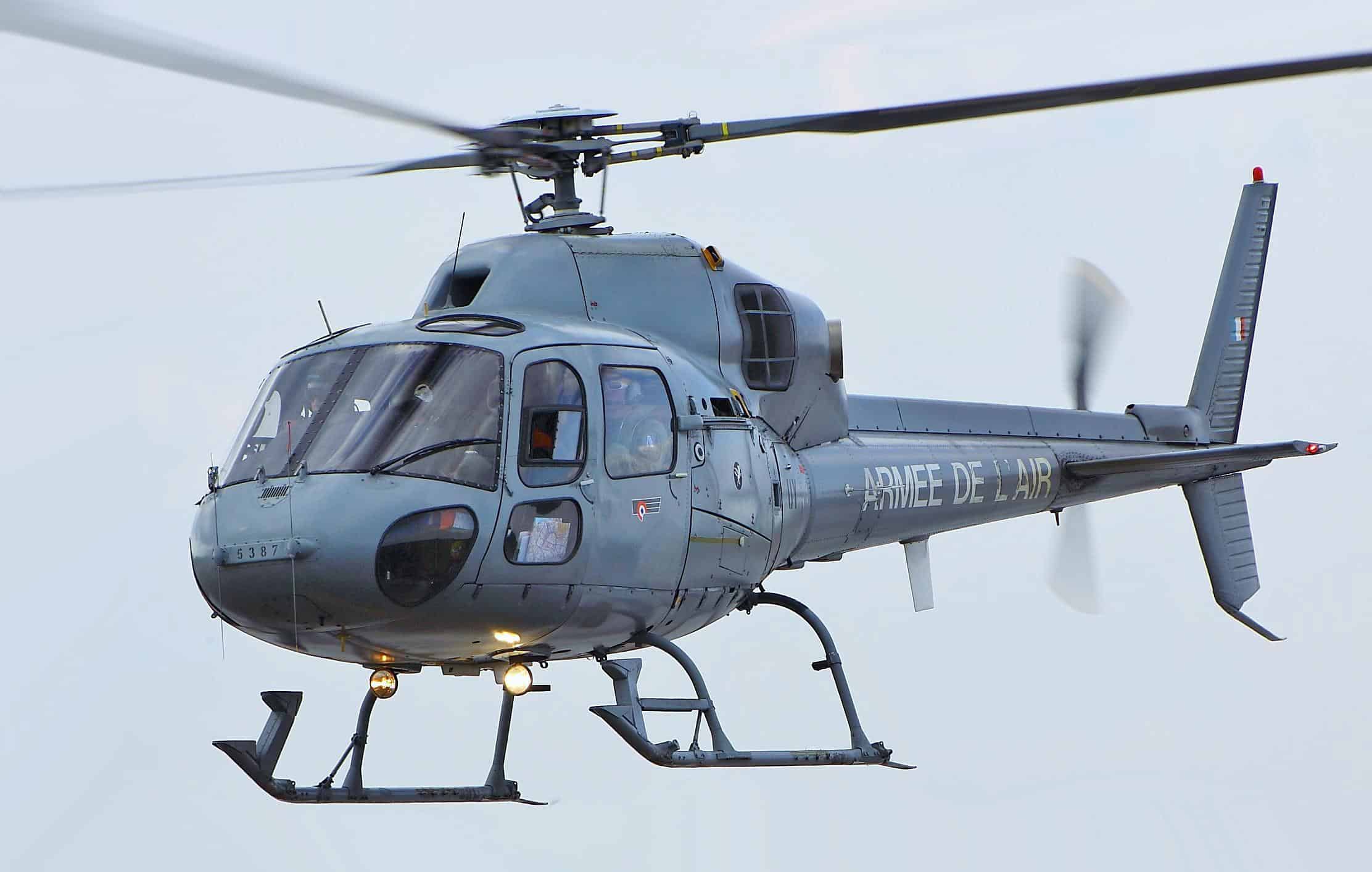
With a top speed of 173 mph, the AS355 is used in a range of missions, including reconnaissance, transport, and even light combat roles. The Twin Squirrel was introduced in 1979, and there are currently 2 of these helicopters in active service. Despite its small size, it can be armed with light machine guns, rocket pods, and air-to-ground or air-to-air missiles. It does see some use among civilians as well, without the armament of course.
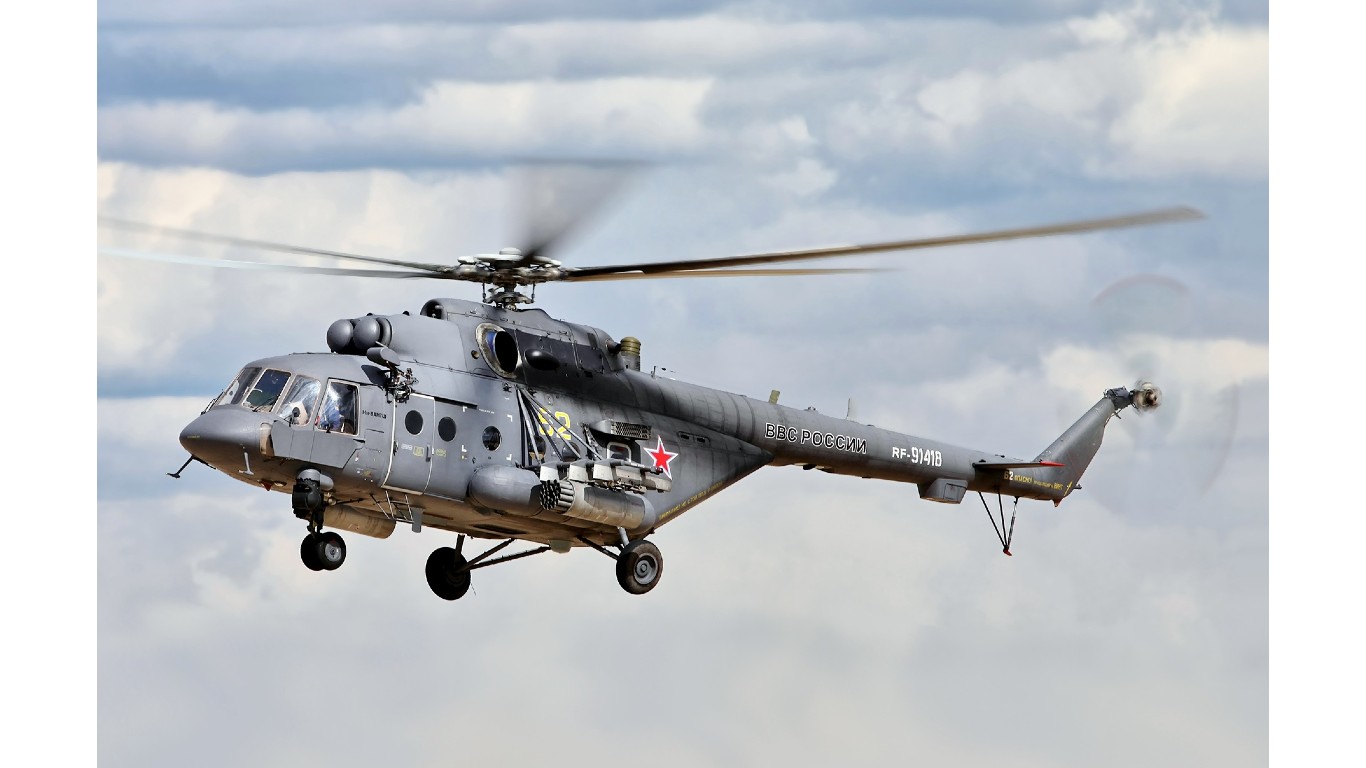
The Mi-8 series is the most-produced helicopter in the world since its introduction in the 1960s. Its later iterations in the Mi-17 and Mi-171 build on the base design but obviously with upgraded avionics, coming about in the 1980s. These helicopters can equip Shturm missiles, rocket pods, 23mm cannon pods, and 7.62mm machine guns.
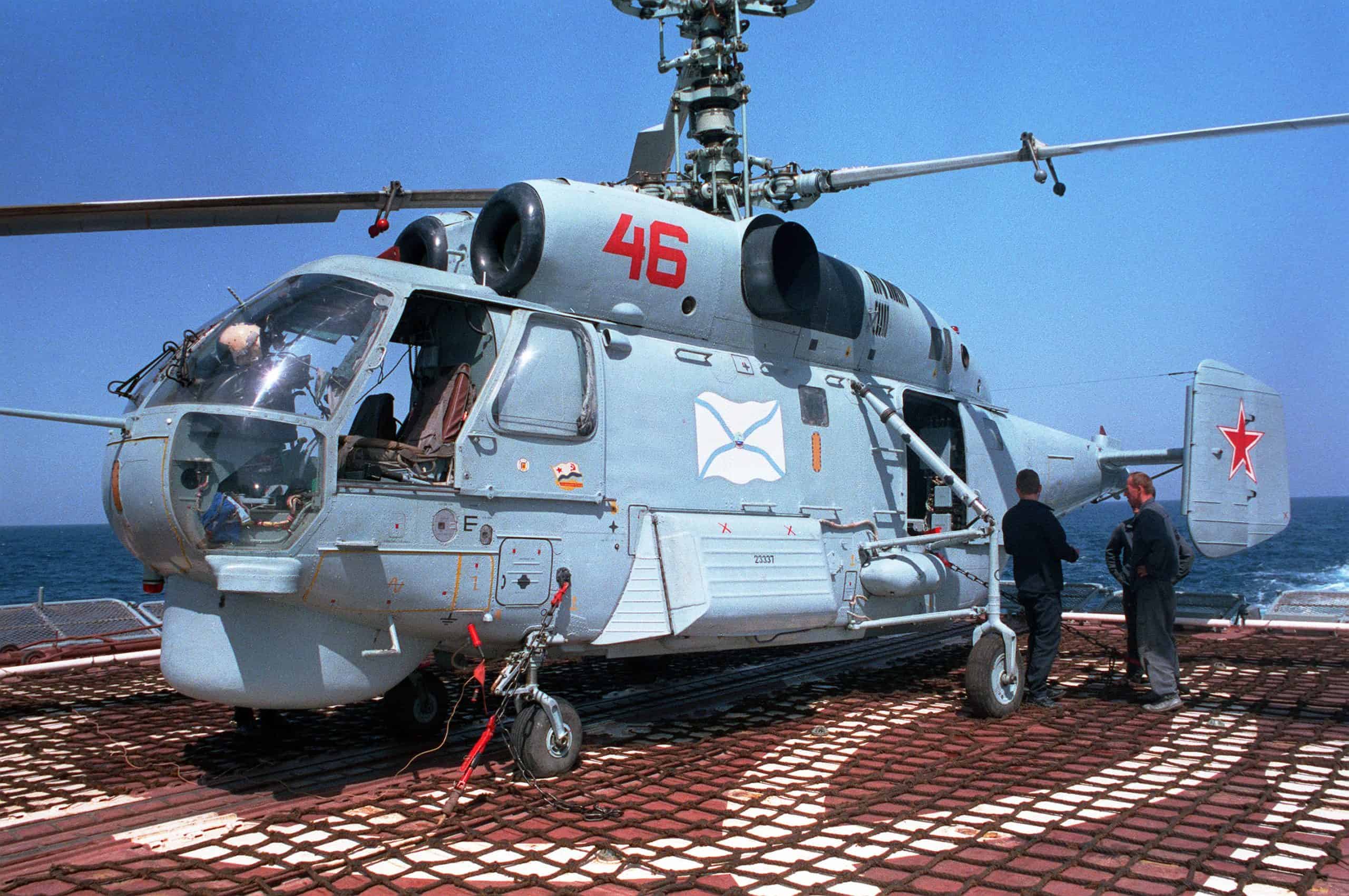
The Ka-27/28/29 Helix, introduced in 1982, is a multi-role helicopter series designed for anti-submarine warfare, search and rescue, and combat support. With a top speed of 143 mph, the Helix series is known for its versatility in naval and military operations.
The Mi-26 Halo is typically a heavy-lift transport helicopter, but it can equip a wide range of armament for combat scenarios. It was introduced in 1983, and there are currently 44 in active service of the Russian military. This helicopter actually holds the world record for the heaviest helicopter lift, having transported a 56-ton piece of machinery.
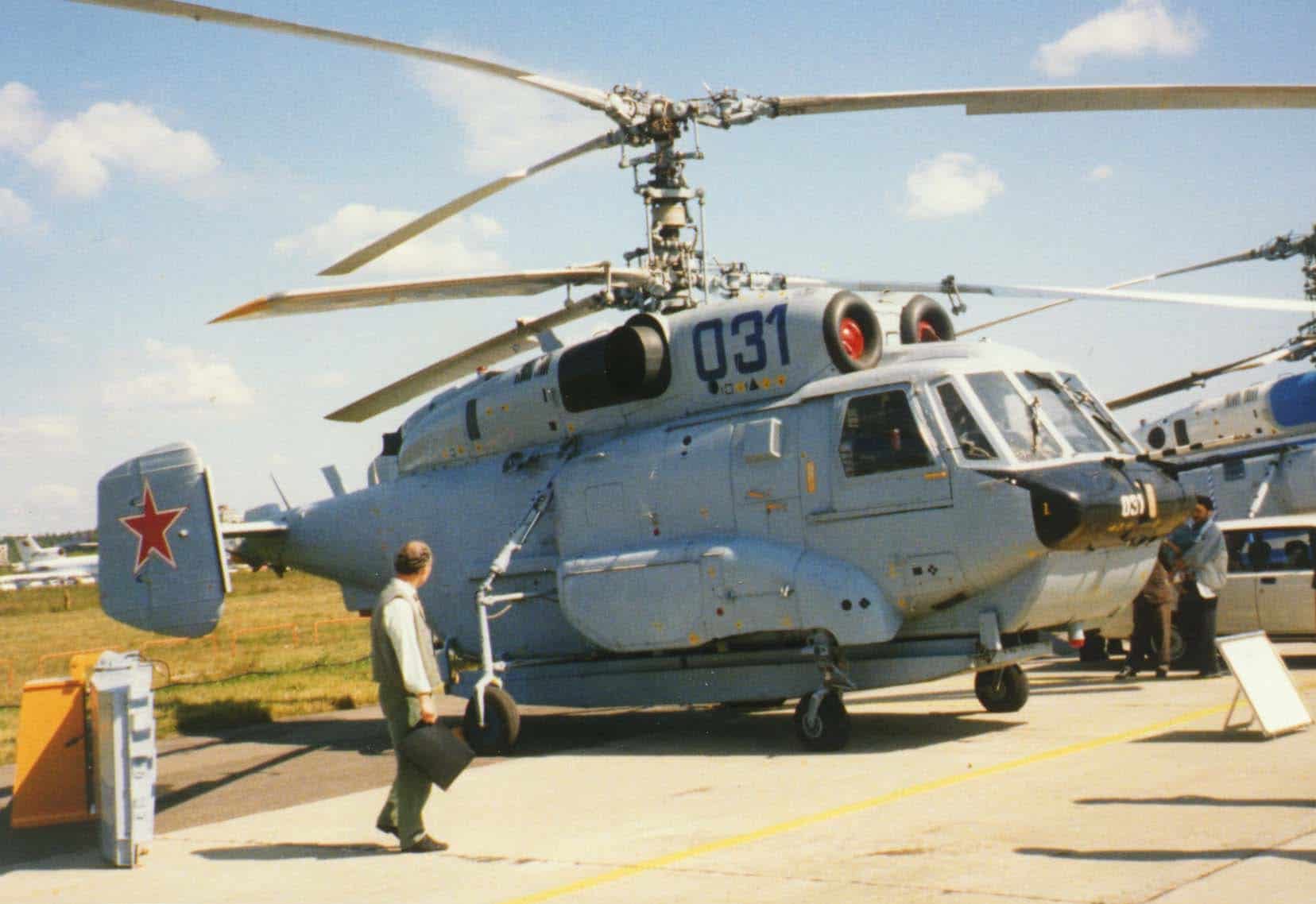
Introduced in 1995, the Ka-31 Helix is an airborne early warning helicopter that provides long-range radar coverage for Russian naval forces. While its main role is reconnaissance, it can also be armed with light machine guns for self-defense. It can reach top speeds around 155 mph, and there are only 3 of these helicopters in active service.
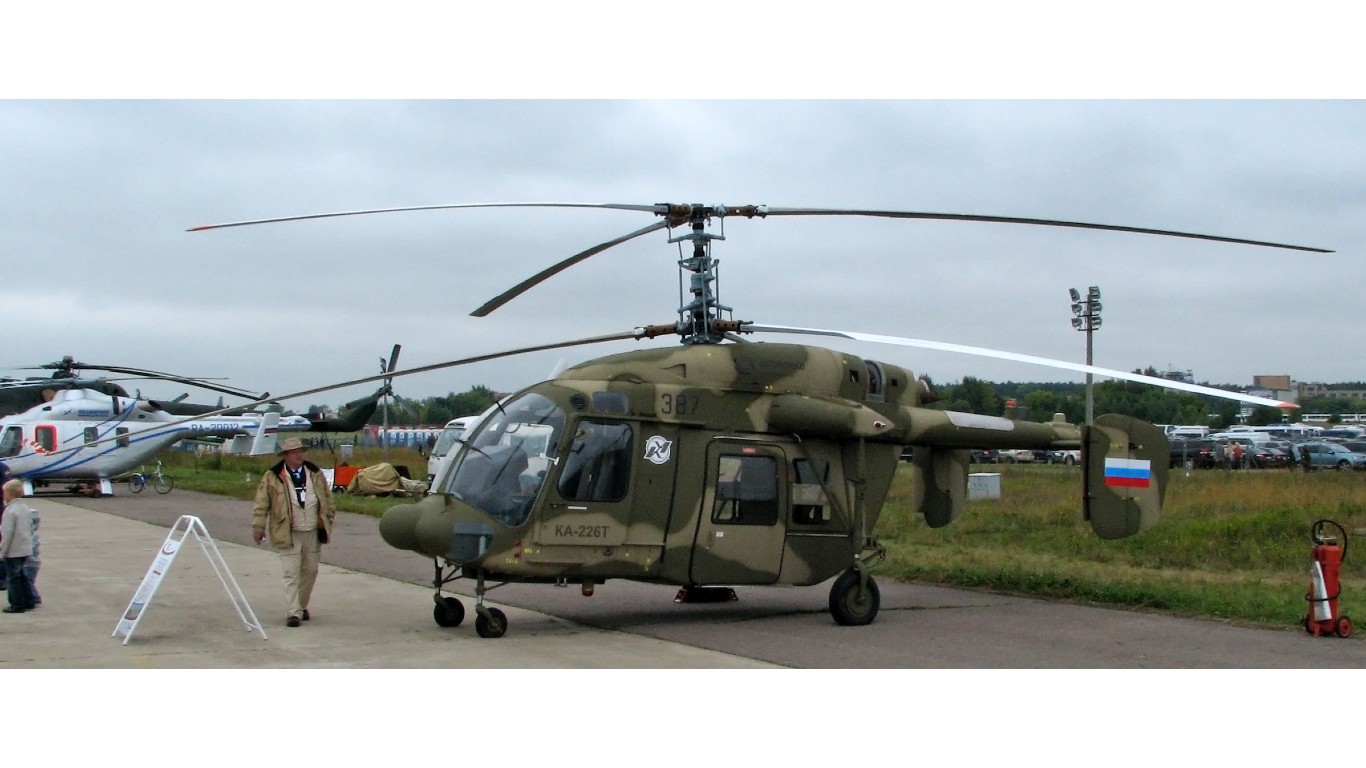
Recognized by the NATO reporting name of Hoodlum, the Ka-226 Sergei was introduced in 2002 as a light utility helicopter. It has a fairly low top speed of 127 mph. The Ka-226 can be outfitted with various light machine guns and rocket pods. It also sees some civilian use.
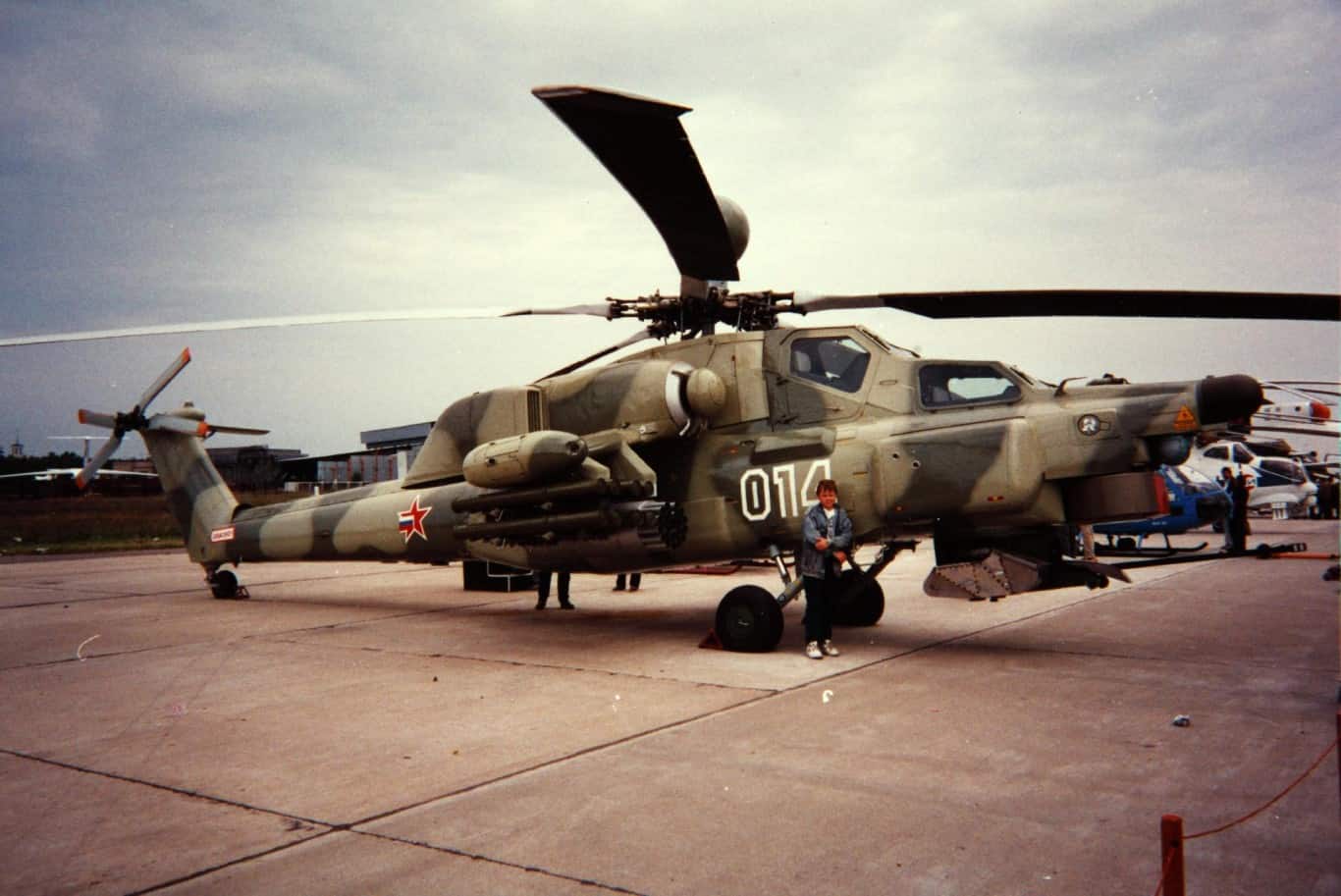
The Mil Mi-28 Havoc is a twin-engine attack helicopter designed for precision strikes on armored targets and close air support for ground troops. One interesting fact about this helicopter that sets it apart from most others is that it can perform advanced maneuvers, like loops and rolls, which are rare for attack helicopters. This coupled with its firepower gives the Havoc a serious edge in almost any engagement.
The Ka-52 Alligator is one of the newest combat helicopters to come out of Russia. Introduced in 2010, these are state-of-the-art attack helicopters designed for close-air support and anti-tank operations. These come standard with a 30mm automatic cannon, and can be equipped with air-to-surface anti-tank missiles, rocket pods, and cannon pods. The coaxial design for the main rotor is truly unique and actually eliminates the need for a tail rotor.
The Mil Mi-38, introduced in 2019, is a medium-lift twin-engine transport helicopter designed for a variety of missions, including cargo transport, troop movement, and medical evacuation. It can equip some small armament, but it is typically used for non-combat roles.
Start by taking a quick retirement quiz from SmartAsset that will match you with up to 3 financial advisors that serve your area and beyond in 5 minutes, or less.
Each advisor has been vetted by SmartAsset and is held to a fiduciary standard to act in your best interests.
Here’s how it works:
1. Answer SmartAsset advisor match quiz
2. Review your pre-screened matches at your leisure. Check out the advisors’ profiles.
3. Speak with advisors at no cost to you. Have an introductory call on the phone or introduction in person and choose whom to work with in the future
Thank you for reading! Have some feedback for us?
Contact the 24/7 Wall St. editorial team.